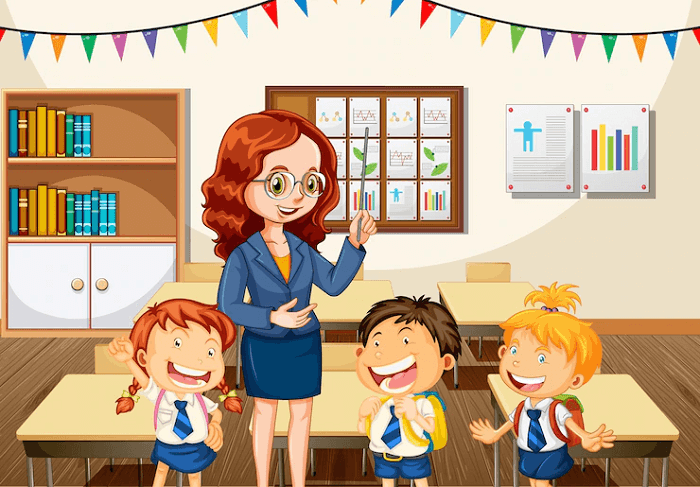The Top 10 Responsibilities of a Teacher

Teaching is a noble profession that shapes the minds of the next generation. It’s a role that demands dedication, patience, and a passion for learning. Teachers wear many hats, from instructors and mentors to caregivers and role models. Responsibilities of a Teacher Their responsibilities extend far beyond delivering lessons and grading papers. Here’s a closer look at the top 10 responsibilities of a teacher:
1. Imparting Knowledge and Fostering Understanding
The primary responsibility of a teacher is to effectively communicate knowledge and concepts to their students. This involves creating engaging lesson plans, utilizing diverse teaching methods, and catering to different learning styles. Teachers must break down complex subjects into digestible chunks, ensuring students grasp the material and develop critical thinking skills.
2. Cultivating a Safe and Supportive Learning Environment
A classroom should be a haven for learning, free from fear and discrimination. Teachers are responsible for establishing clear expectations, promoting positive behavior, and fostering a sense of community within their classrooms. This includes building trust with students, creating a space where they feel comfortable asking questions and making mistakes.
3. Assessing and Evaluating Student Progress
Teachers need to continuously monitor student learning and adapt their teaching accordingly. This involves designing effective assessments, providing constructive feedback, and identifying areas where students need additional support. Teachers should also celebrate student achievements and encourage them to set and achieve personal goals.
4. Inspiring a Love for Learning
Effective teaching goes beyond simply conveying facts and figures. A good teacher ignites a passion for learning in their students, encouraging them to explore new ideas and ask questions. They make learning an enjoyable and enriching experience, fostering a lifelong love of knowledge.
5. Promoting Social and Emotional Development
Teachers play a crucial role in shaping the social and emotional well-being of their students. They help students develop communication skills, build healthy relationships, and navigate the challenges of adolescence. Teachers also provide emotional support and guidance, helping students cope with stress, anxiety, and other challenges.
6. Collaborating with Parents and Guardians
Open communication with parents and guardians is essential for a student’s success. Teachers should regularly communicate student progress, share concerns, and work together to develop strategies for supporting individual needs. Building strong relationships with families fosters a sense of partnership and ensures everyone is on the same page when it comes to student education.
7. Adapting to Diverse Learning Needs
Every student learns differently. Teachers must be able to cater to a variety of learning styles and abilities. This includes implementing differentiated instruction, providing additional support for struggling students, and challenging advanced learners. Teachers should embrace inclusivity and create a learning environment where all students feel valued and supported.
8. Staying Abreast of Curriculum and Pedagogical Developments
The field of education is constantly evolving. Teachers need to stay updated on the latest curriculum standards, teaching methods, and technological advancements. This involves attending professional development workshops, reading educational journals, and actively participating in professional learning communities.
9. Promoting Civic Engagement and Global Awareness
Teachers have an opportunity to instill in their students a sense of civic responsibility and global awareness. They can encourage students to be active participants in their communities, engage in critical thinking about current events, and appreciate the diversity of cultures and perspectives around the world.
10. Practicing Self-Reflection and Continuous Improvement
Effective teachers are lifelong learners who are always striving to improve their craft. They should regularly reflect on their teaching practices, seek feedback from colleagues and students, and be open to trying new things. Continuous self-improvement ensures that teachers stay effective and provide the best possible learning experience for their students.
A Role Beyond Compare
Being a teacher is more than just a job; it’s a calling. It’s a chance to make a real difference in the lives of others and mold the future of society. These top 10 responsibilities capture the essence of this remarkable profession, highlighting the dedication, skill, and compassion that teachers bring to their classrooms every day. As Nelson Mandela so eloquently stated, “Education is the most powerful weapon which you can use to change the world.” Let’s celebrate the vital role of teachers and support them in their tireless efforts to educate and inspire the next generation.
Best Engineering Colleges in Mumbai
| Image Credits: javatpoint.com |
| article creadit: google and wiki |




